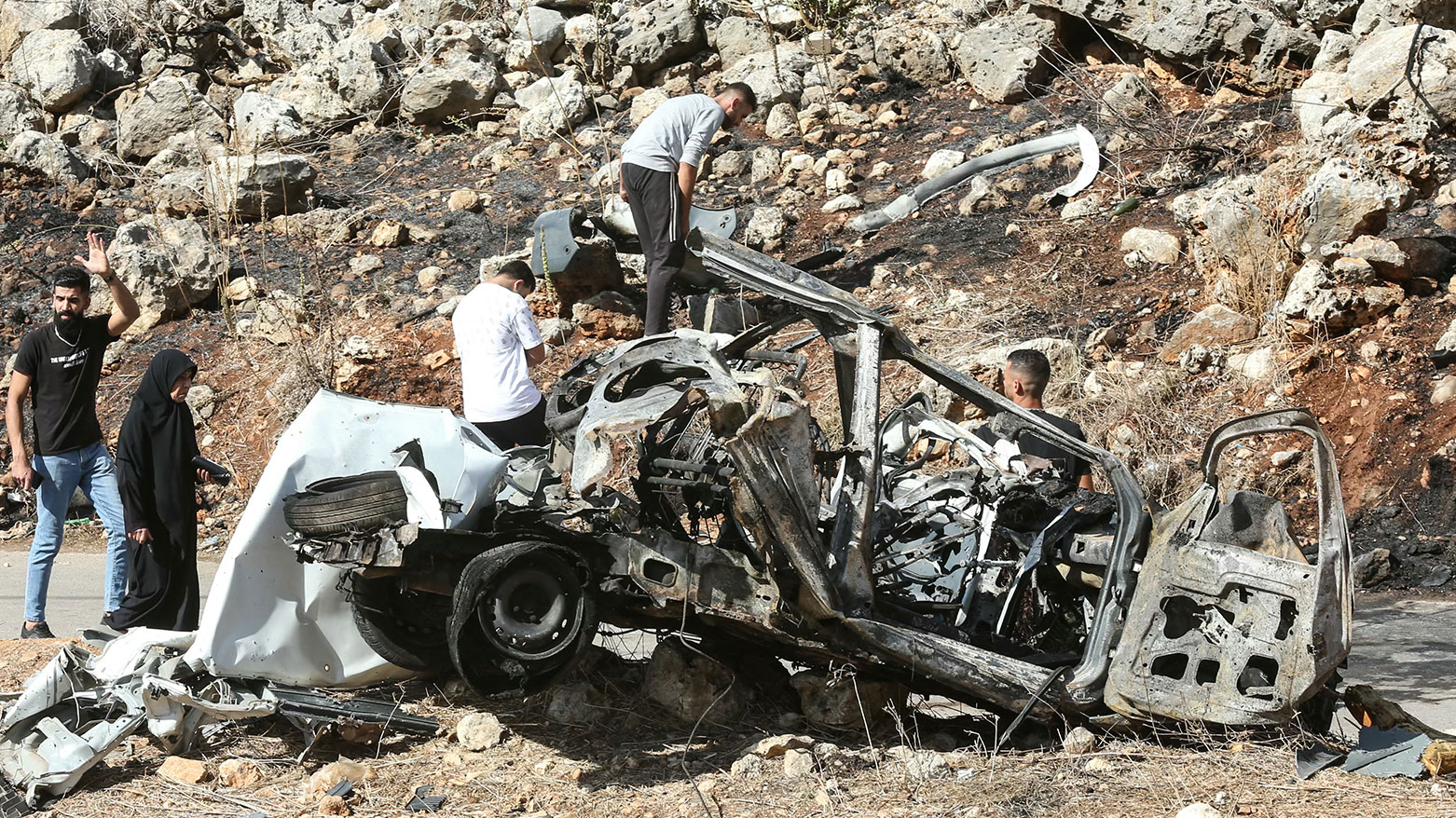Israeli Strikes Kill Two in Southern and Eastern Lebanon Despite Ceasefire
Israeli airstrikes killed two people in southern and eastern Lebanon, despite a year-long ceasefire. Lebanon's health ministry reported the casualties in Naqoura and Nabi Sheet, as Israel continues targeting what it claims are Hezbollah positions.

ERBIL (Kurdistan24) – Lebanon’s Ministry of Health announced on Sunday that two people were killed in Israeli airstrikes targeting the country’s south and east, marking the latest in a series of deadly incidents despite a ceasefire that has officially been in place for nearly a year.
According to the ministry, one person was killed when an Israeli missile struck a car in Naqoura, a coastal town in the Tyre province near the southern border. A separate strike on a vehicle in Nabi Sheet, in the eastern Baalbek region, claimed the life of another person.
The ministry added that one civilian was also injured in the town of Aitaroun after an explosion caused by war remnants.
The Israeli military has not yet commented on Sunday’s attacks.
Although the ceasefire agreement between Lebanon and Israel remains formally in effect, Israeli forces have continued launching strikes across Lebanese territory, claiming to target Hezbollah positions and assets.
The Lebanese health ministry reported that two people were killed and another wounded in two Israeli strikes on the south on Saturday, with the Israeli army later asserting that it had killed Hezbollah members.
On Friday, two more individuals were killed in separate Israeli raids, while on Thursday, a wave of Israeli strikes on southern and eastern Lebanon killed four people, including an elderly woman.
This sustained escalation has raised concerns among international observers about the fragility of the truce and the potential for a wider conflict.
A United Nations special rapporteur told Agence France-Presse (AFP) last week that Israel’s repeated targeting of civilian vehicles in Lebanon could constitute war crimes, despite Israel’s claim that its strikes are directed at Hezbollah operatives.
Under the ceasefire deal reached last year, Israel was expected to withdraw its troops from southern Lebanon, while Hezbollah agreed to pull back north of the Litani River and dismantle its military infrastructure in the south.
However, Israel has maintained troops at five border points it considers strategically vital, while Hezbollah continues to reject the Lebanese government’s plan to disarm the group—a move pushed by Washington and regional mediators to prevent further escalation.
The continuing strikes have deepened Lebanon’s humanitarian strain, particularly in the south, where residents already face the consequences of lingering war remnants and infrastructure damage.
Despite mounting casualties, both sides remain entrenched, with no sign of an immediate political breakthrough. The ongoing Israeli attacks, coupled with efforts to disarm Hezbollah, are testing the limits of Lebanon’s internal stability and the credibility of the ceasefire framework.